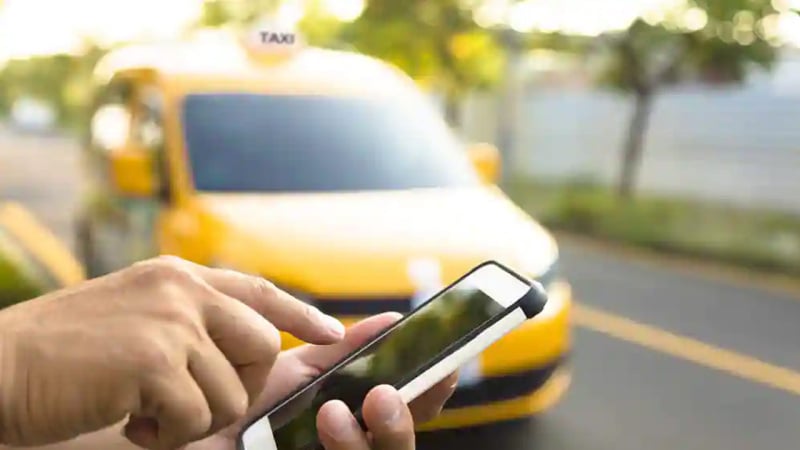
84 per cent of app-based taxi users said they have faced forced action where they had to cancel rides. Of the app-based taxi users surveyed, 78 percent said they felt tempted and switched to the platform.
Fare suddenly increased while booking cab or taxi through mobile app? If the answer is yes, then know that the fares are not increasing because the demand for cabs is high, but because they are being increased using technology. According to a survey conducted by Local Circle, 8 out of 10 app users surveyed reported using the dark pattern while booking. While four out of ten confirmed having experienced drip pricing.
Fares are different for Android and iPhone
According to the survey, commuters found a strange disparity in fares for the same cab traveling in the same direction on Android devices and iPhones. When it came to light that Apple users were being charged more money, they were shocked. The question is whether the pricing algorithms in ride-hailing apps are programmed to overcharge Apple users. This dark pattern is not listed among the 13 identified by the government. Questions have also been raised about how ride-hailing apps are able to access users’ hardware data, even though they require consent when installing an app.
The survey also revealed that users experienced acts such as inducement, switching, drip pricing, imposing fines or forcibly canceling rides. Feedback was taken from 33,000 people who booked cabs through the app in 269 districts of the country. 61 percent of the survey respondents were men, while 39 percent were women.
Increase in fare by Rs 100 to 200
According to the survey, due to the right location the fare often increases by Rs 100 to Rs 200. On many occasions, the delay compared to the indicated waiting time is so great that the ride is forced to be canceled and the fare increased in the second booking. Of the app-based taxi users surveyed, 42 percent said they faced hidden charges (other than taxes) that were not previously disclosed.
84 per cent of app-based taxi users said they have faced coercive action where they had to cancel rides. Of the app-based taxi users surveyed, 78 percent said they have experienced greed and change through the platform. For example, the wait time shown to users before booking a ride is much less than the actual time it takes the driver to reach them.
Uber-Ola uses a dark pattern
According to the survey, Uber uses four dark patterns which are forced action, interface interference, bait-switch and drip pricing. Whereas Ola uses three dark patterns, which are coercive action, bait-switch and drip pricing. BlueSmart, InDrive and Rapido all use ‘drip pricing’. Eight out of ten app taxi users surveyed reported dark patterns such as bait-switching and force actions, while four out of ten confirmed experiencing drip pricing.
 look news india
look news india


